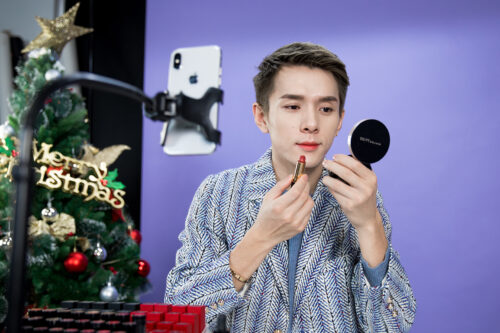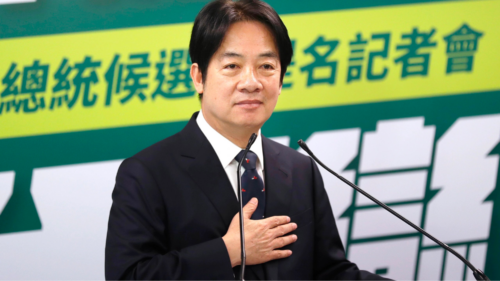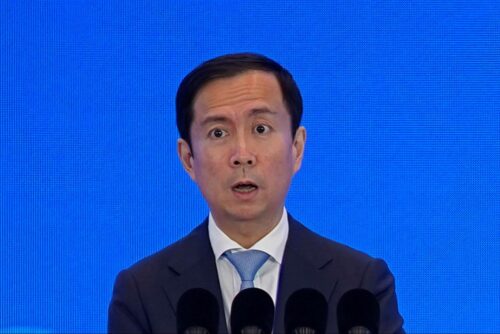It’s been a quiet revolution. Instead of turning on the TV or plugging into a livestream chatroom when they get home each day, millions of tired Chinese now turn their phones to an app called Taobao Live. There, they snap up bargain after bargain, pitched live by some of the biggest influencers in the country.
Who is Viya?
Viya (or Wēi Yà 薇娅, the stage name of Huáng Wēi 黄薇) is the face of this new “ecommerce livestreaming” boom. Her numbers are staggering. She can draw more viewers – 37 million this May — than the finales of Game of Thrones, Breaking Bad, and the latest season of The Bachelor, combined. She’s made more profit in one day (Single’s Day 2019, $385 million) than Aston Martin does in one year. She’s sold everything — car fresheners and GM rice, noodles and houses, razors and rockets (designed to launch satellites into orbit).
Impressive for a shopping channel.
Viya’s livestreaming show is a hybrid, described by Bloomberg as “part variety show, part infomercial, part group chat.” At its heart is a conveyor belt of products, each held up, praised, demonstrated, and dispatched, with fans shooting out of the gates in pursuit of hot discounts with a swift “5-4-3-2-1!”
But many come just for her personable, grounded, and engaging persona. She laughs freely with A-List celebrities and asks the questions viewers desperately want answered. She shouts jokes with a joyous smile to her assistants off camera. She plucks out comments from the swarm that flood up the side of the screen, answering those begging for recommendations or pacifying others wanting refunds, all in her reassuring husky contralto voice. She describes the latest fashions with the to-the-second knowledge of an insider and the no-nonsense authority of a connoisseur. Fans have christened her Dora-viya, a nod to Doraemon, an anime character who dishes out handy gadgets to friends from a magic pouch.
It’s a reputation she carefully nurtures. “I position myself as someone who helps the customer make a decision,” she told Chinese reporters in May. “I need to think about their needs.” At one point she just told them about fashion, but fans loved it when she randomly ate cake on-screen, suggesting she try selling that, too. She sold 1,000 in one second.
She comes across as the girl next door, dressing casually to create intimacy, as if joining viewers for a cozy catch-up at the end of their day. She originally started with a facade of professionalism, dressing well and focused unswervingly on the pitch. But fans were interested in hearing about her life, so now she gossips with them, telling them about how her kids and husband are doing.
Usually, Chinese are wary of sellers, who say anything about products they’ve been paid to sell. But Viya is the viewer’s champion, heading out to get them the best deals on the best new products, flagging up their complaints or badgering her off-camera team when popular deals run out.
In return, you give your loyalty to her — she dubs her fans “Women of Viya” (薇娅的女人 wēi yà de nǚrén) instead of the usual terms of endearment livestreamers greet fans with. You are hers. Every six seconds, a shoal of brightly-colored gifts flashes up on the corner of the screen — each swarm represents over a thousand likes — proof that viewers are behind her.
The person behind the personality
Huang Wei always had the sales gift. Her Anhui Province family all worked in retail, and in 2018 she opened her first Beijing shop at the age of 18. Her boyfriend ran the supplies, while she was at the front drumming up business.
In 2005, wider ambitions led her to win the TV reality singing contest Super Idol, fronting a pop group for several years. But she eventually went back to retail, opening a chain of stores in Xi’an. But she soon jumped on the digital bandwagon, doing all of her selling online by 2012. Taobao noticed her success and approached her in 2016 with an enticing proposal.
The idea was Taobao Live. Once upon a time — five years ago — livestreaming was just for entertainment, influencers singing and gossiping into webcams, an endless stream of real-time interactions with millions of viewers across China.
But in 2016 Alibaba launched Taobao Live, a platform marrying livestreaming and ecommerce. The company successfully tapped into the colossus of China’s consumer market. Users spent more than double the amount of time shopping on livestreaming channels than on the normal Taobao platform (a Chinese Amazon equivalent). Shopping bonanzas like Single’s Day has heavily promoted the medium. Revenue rocketed from 3 billion yuan ($427 million) in 2017, to 638 billion yuan ($91 billion) in 2019.
This was even before the COVID-19 outbreak. In February, sensing an opportunity, Taobao waived service fees to encourage merchants to move online. The numbers using Taobao Live increased by 719% that month. In March, Taobao announced plans to host livestreaming sessions for 300,000 merchants per day. Lead advertising agency Proctor & Gamble and influencers like Kim Kardashian are taking the phenomenon very seriously.
Viya’s been surfing the crest. Her evening show is Taobao’s most-watched e-commerce livestream — her viewing figures doubled during the COVID-19 lockdown, and many seem to have stayed loyal. She spends the day looking through products, dismissing many that fail to pass her high standards. She can afford to be a perfectionist. Companies fall over each other to get their products on her show, willing to slash as much as three-quarters off prices. They wouldn’t do that for anyone but her.
Unless it’s lipstick. Viya is rarely mentioned on her own when it comes to Taobao ecommerce royalty — Lǐ Jiāqí 李佳琦, the “Lipstick King,” is close behind. The Hunanese vendor is Viya’s only true rival, but confines himself to lipsticks. He once sold 15,000 of them in just five minutes. He’s tried on hundreds of thousands — each with an ecstatically exclaimed “Oh my God!!!” — so many that he’s taken out insurance on his lips. This Single’s Day, he had a lipstick sell-off against none other than Jack Ma (Mǎ Yún 马云), the founder of AliBaba. Li won.
It’s not all about profits. Viya has used her influence to boost anti-poverty campaigns, selling local products from poorer parts of China. During the pandemic, she visited Wuhan and featured products from the stricken city. She’s championed new forms of high-yielding rice, educating her audience on China’s reliance on grain and wheat.
But it’s a small number who can wield such clout. Combine the viewership of Taobao’s third and fourth most popular ecommerce livestreamers and they don’t even make up 30% of Li Jiaqi’s figures. Most of Taobao Live’s market is tied up in these two.
Think of the strain, spurred by profits and fear that their fans will move on if they rest for even a moment. Li Jiaqi has commented on how his work means he has “no life,” spending most of his time with a few assistants and the total exhaustion of selling for 48 hours straight on Single’s Day.
Viya’s daily schedule is brutal. She streams for four hours every evening, seven days a week, trying 30 to 40 products from 8 p.m. to midnight. Then she preps for the next day, reviewing 200 to 300 products with her team of assistants until the morning. She sleeps from 9 a.m. to 2 or 3 in the afternoon.
It all shows when tuning in at 11 p.m. one evening last week. Today her countdown feels jaded, part of the daily commute. She’s gotten through eight products in the space of half an hour, but tells us to stick around as there are more than 20 still to come. She assures us a breakfast cereal is delicious, lauds the flavor of vacuum-packed pork (“fresh from the factory”), and munches on “excellent” shellfish noodles. But how could anyone believe those dulled eyes?
Chinese Lives is a weekly series. Previously:
Jiang Yanyong, Tiananmen doctor and forgotten SARS whistleblower






